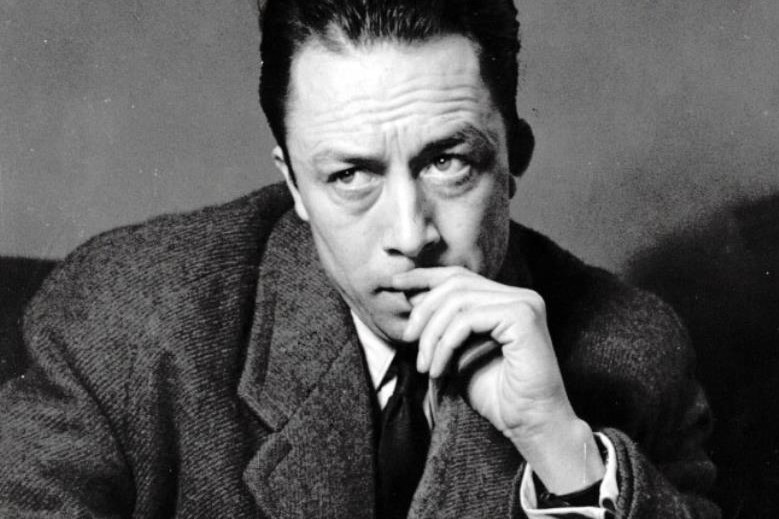The pandemic has emptied shelves of a few staples, including books on plagues, most notably The Plague, Albert Camus' 1947 novel about a fictional catastrophe in the city of Oran, a city of 200,000 in the former French colony of Algeria. Fortunately, I was able to beat the hordes to acquire a last copy at my local used book store.
Like many, I had been forced to read this book in high school, to no ill or beneficial effect. My only faint recollection was that it made no sense to me at the time. Youth is certainly wasted on the young and so are books about mortality.
Now that I am in my more advanced years and sharing them with the ugly, spike-festooned coronavirus, The Plague held my attention like the approach of death itself.
As a reminder, the novel follows the life of a Dr. Bernard Rieux, GP, from the April day when bubonic plague arrives in his nondescript city, to the following February "when the plague seemed to be retreating, slinking back to the obscure lair from which it had stealthily emerged.”
During the plague, Dr. Rieux treats a lot of patients, most of whom die. But that's not really the point. The point is to ponder what is the right thing to do, the right way to feel, the best way to behave in the midst of an unfathomable tragedy?
Camus, you may recall, was placed into the camp of the philosophical existentialists (a designation he rejected) by those who saw his work as underlining life's absurdity — that life had no meaning, no narrative whole, no reward for good or punishment for evil. But after my fresh review I think that misses the mark. Now that we are all living with our new plague, as unexpected for us in this hyper-modern age as it was for the self-confidently "modern" citizens of Oran, his prose rings a note more hopeful than fatalistic — and this despite all the horror and dying depicted.
Two sources of motivation contend with each other. The first is expressed by the Jesuit priest Father Paneloux, who argues for faith in a higher being with expectations for each of us. Over the course of the novel, the priest at first counsels his flock that the plague has come to Oran as a punishment for evil. In time, and after Camus includes a very long passage where the priest and Dr. Rieux bear witness to the torment and death of an innocent child, even the Jesuit cannot claim to believe there is any divine justice in such misery inflicted on the innocent. The priest falls back to a more terrible and essential faith. As Camus writes:
"In other manifestations of life God made things easy for us and, thus far, our religion had no merit. But in this respect He put us, so to speak, with our backs to the wall. Indeed, we all were up against the wall that plague had built around us, and in its lethal shadow we must work out our salvation…. Father Paneloux would stand fast, his back to the wall, and face honestly the terrible problem of a child's agony. And he would boldly say to those who listened to his words today: ‘My brothers, a time of testing has come for us all. We must believe or deny everything. And who among you, I ask, would dare to deny everything?’”
Camus, to his credit, does not try to undercut this Christian view that although God's will is inscrutable, life is divinely imbued with meaning and faith is most tested, and most important, when "our backs are against a wall."
But the author and his hero Dr. Rieux lack the advantage, or the curse, of faith. For Rieux, it is useless to search for God's meaning in the realities of the plague. For him, it is far less complicated. What is given to him, and to us by extension, is a task — to simply fight against the plague, win or lose.
The plague of course is a metaphor for life itself. In life, the book concludes, our fate is uncertain and our life may have no sensible narrative arc. But despite that, our lives are not without purpose. Our purpose is to love our lovers, our friends, and midnight jumps in the warm waters of the Mediterranean. Our purpose, in the midst of such moments, is to work to reduce our own suffering and the suffering of others, knowing full well that in the end suffering will win out. The word Camus chooses for this way of life, free of God’s direction, is "decency."
As the new year arrives and the plague wanes, Dr. Rieux's friend Rambert calls him a hero for all his efforts. The doctor protests:
“‘However, there's one thing I must tell you: there's no question of heroism in all this. It's a matter of common decency. That's an idea that may make some people smile, but the only means of righting a plague is common decency.'
“‘What do you mean by 'common decency?’ Rambert's tone was grave.
“‘I don't know what it means for other people. But in my case I know that it consists in doing my job.’”
It strikes me that in our current struggle, for many of us not much is asked other than to maintain social distance and be caring for each other. To do our jobs and be decent.
Camus reminds us that we are all mortal and each of us will someday die. In the meantime, we can choose to do little or great things to alleviate suffering. To be, as much as possible, like Dr. Rieux — someone who fights to delay suffering and keep us all alive as long as possible. This is the essence of the human condition we recognize and are moved by when we see B.C.’s public health officer Dr. Bonnie Henry cry as she speaks about older people at risk of dying. This is the quiet competence in service of the greater good we recognize in a leader such as Angela Merkel. This is what we cannot find in the empty heart of Donald Trump.
Camus died in a car crash at the age of 47, just a few years after he received the Nobel Prize in literature. His work is now rightfully revived in this disturbing time. If you, like me, read The Plague when you were too young in a world far too bright to be able to understand the gift it offers, try again. ![]()
Read more: Coronavirus
















Tyee Commenting Guidelines
Comments that violate guidelines risk being deleted, and violations may result in a temporary or permanent user ban. Maintain the spirit of good conversation to stay in the discussion.
*Please note The Tyee is not a forum for spreading misinformation about COVID-19, denying its existence or minimizing its risk to public health.
Do:
Do not: